Ditapis dengan

E-Book The Big Gamble: The Migration of Eritreans to Europe
Why, every year, tens of thousands of people are willing to risk their lives in perilous voyages across Africa and the Mediterranean Sea? Why do they face such an ordeal to reach European countries where their long-term prospects are often dismal? The Big Gamble answers these questions through a multi-sited ethnography with refugees, their families back, smugglers and relatives in the diaspora.…
- Edisi
- -
- ISBN/ISSN
- 9780520298705
- Deskripsi Fisik
- 243 halaman
- Judul Seri
- -
- No. Panggil
- 301 BEL t
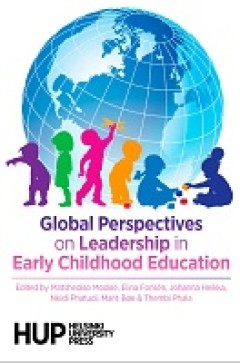
E-Book Global Perspectives on Leadership in Early Childhood Education
Global Perspectives on Leadership in Early Childhood Education aims to improve leadership and management in Early Childhood Education and Care (ECEC) settings through research evidence. Written for a wide audience, including the academic community, policymakers, practitioners, teachers, directors, and professionals, the book provides knowledge and tools to enhance the ECEC sector. Divided into …
- Edisi
- -
- ISBN/ISSN
- 9789523690882
- Deskripsi Fisik
- 340 halaman
- Judul Seri
- -
- No. Panggil
- 370.19 GLO m
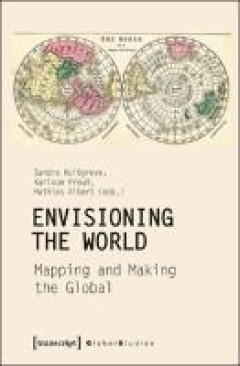
E-Book Envisioning the World: Mapping and Making the Global
The "global" is permanently made and remade by how it is envisioned in political projects, in language, and in literature. Through a range of case studies, this book shows how practices of referring to the world actually constitute the global in its many facets. It aims to provide a sense in readers of how the global is not something »out there«, but that it is embedded in a wide range of the…
- Edisi
- -
- ISBN/ISSN
- 9783839455296
- Deskripsi Fisik
- 264 halaman
- Judul Seri
- -
- No. Panggil
- 301 HOL e
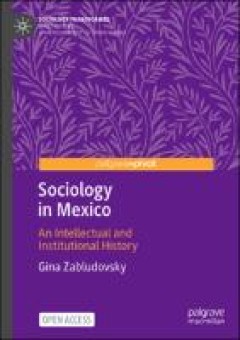
E-Book Sociology in Mexico: An Intellectual and Institutional History
The book analyses the interaction between sociology and the main economic, political and social change in the country, including the 1910 Mexican Revolution, the main social movements, the role of the intellectual exiles from Spain and Latin America, and the participation of women, who have often remained invisible in the history of sociology. The book explores how sociological discourse played…
- Edisi
- -
- ISBN/ISSN
- 9783031420894
- Deskripsi Fisik
- 90 halaman
- Judul Seri
- -
- No. Panggil
- 307.12 ZAB s
E-Book Revitalizing Collegiality: Restoring Faculty Authority in Universities
The ebook edition of this title is Open Access and freely available to read online. The higher education and research system faces a constant dilemma. On the one hand, research and higher education are run by autonomous, interrelated academic communities, often described as collegial governance. On the other hand, they are an instrument for the fulfillment of goals that are often external to th…
- Edisi
- -
- ISBN/ISSN
- 9781804558188
- Deskripsi Fisik
- 230 halaman
- Judul Seri
- -
- No. Panggil
- 370.19 SAH r
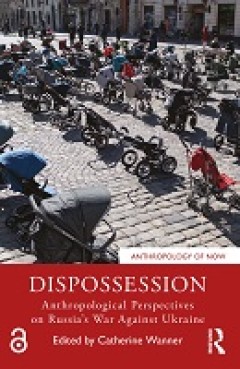
E-Book Dispossession: Anthropological Perspectives on Russia’s War Against …
This volume examines Russia’s war on Ukraine. Scholars who have lived through the Russian invasion or who have conducted ethnographic research in the region for decades provide timely analysis of a war that will leave a lasting mark on the twenty-first century. Using the concept of dispossession, this volume showcases some of the novel ways violence operates in the Russian-Ukrainian war and t…
- Edisi
- -
- ISBN/ISSN
- 9781032466224
- Deskripsi Fisik
- 271 halaman
- Judul Seri
- -
- No. Panggil
- 301 WAN d
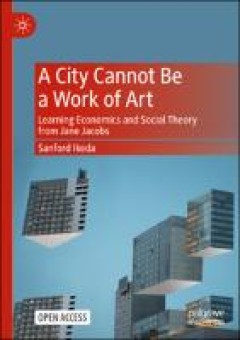
E-Book A City Cannot Be a Work of Art
This open access book connects Jane Jacobs's celebrated urban analysis to her ideas on economics and social theory. While Jacobs is a legend in the field of urbanism and famous for challenging and profoundly influencing urban planning and design, her theoretical contributions – although central to her criticisms of and proposals for public policy – are frequently overlooked even by her most…
- Edisi
- -
- ISBN/ISSN
- 9789819953622
- Deskripsi Fisik
- 400 halaman
- Judul Seri
- -
- No. Panggil
- 351.17 SAN a
E-book Cultural Heritage Preservation : The Past, the Present and the Future
Heritage comes in many shapes—in tangible forms such as sites, buildings, landscapes, or as intangibles, like memories, emotions, values and customs—as does the use of heritage, ranging from the purpose of building nations to marketing places. Heritage usually represents a phenomenon within a traditional historical discourse but have lately, more and more, come to take in peripheral appeara…
- Edisi
- -
- ISBN/ISSN
- 9789187045950
- Deskripsi Fisik
- 158 hlm
- Judul Seri
- -
- No. Panggil
- 301 NIL c
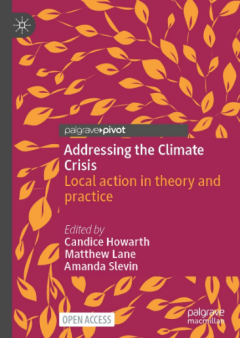
E-book Addressing the Climate Crisis: Local Action in Theory and Practice
This open access book brings together a collection of cutting-edge insights into how action can and is already being taken against climate change at multiple levels of our societies, amidst growing calls for transformative and inclusive climate action. In an era of increasing recognition regarding climate and ecological breakdown, this book offers hope, inspiration and analyses for multi-level …
- Edisi
- -
- ISBN/ISSN
- 9783030797393
- Deskripsi Fisik
- xxv, 143hlm : ill
- Judul Seri
- -
- No. Panggil
- 363.705 HOW a
E-book Culture Management : Strategy and marketing aspects
Any business entity which wishes to maintain and strengthen its position in the market must adapt to changing market conditions and the requirements and needs of its customers. This applies to all sectors of the economy, including business entities in the cultural sector, such as cultural institutions. For over twenty years, we have been able to observe dynamic develop…
- Edisi
- -
- ISBN/ISSN
- 9783832543785
- Deskripsi Fisik
- 196 hlm
- Judul Seri
- -
- No. Panggil
- 301 WRO c
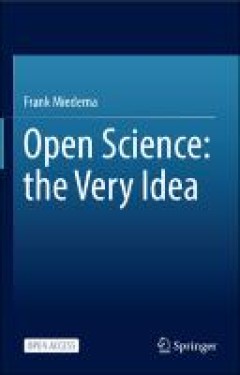
E-Book Open Science: the Very Idea
This open access book provides a broad context for the understanding of current problems of science and of the different movements aiming to improve the societal impact of science and research. The author offers insights with regard to ideas, old and new, about science, and their historical origins in philosophy and sociology of science, which is of interest to a broad readership. The book show…
- Edisi
- -
- ISBN/ISSN
- 9789402421156
- Deskripsi Fisik
- 247 pages
- Judul Seri
- -
- No. Panggil
- 300.1 MIE o
E-book Urban Planning Against Poverty : How to Think and Do Better Cities in …
As a human institution, cities are a reflection of the history of humankind whose description, analysis and forecasting have gradually been appropriated and influ-enced by numerous scientific disciplines, technological advances and humanistic visions, and highlight cities’ morphology, land use and the diverse forms of socio-spatial interaction that take place in …
- Edisi
- -
- ISBN/ISSN
- 9783030284190
- Deskripsi Fisik
- -
- Judul Seri
- -
- No. Panggil
- 307.12 BOL u
E-book Open Science : The very idea
Science promised to society to contribute to the grand challenges of the United Nations, WHO, the EU agenda and national agendas for change and improvement of our life. It will be discussed how this social contract between science and society has developed since 1945. The first phase from 1945 till 1960 was characterized by autonomy, building on the successes of the natural …
- Edisi
- -
- ISBN/ISSN
- 9789402421156
- Deskripsi Fisik
- 265 hlm
- Judul Seri
- -
- No. Panggil
- 501 MIE o
 Karya Umum
Karya Umum  Filsafat
Filsafat  Agama
Agama  Ilmu-ilmu Sosial
Ilmu-ilmu Sosial  Bahasa
Bahasa  Ilmu-ilmu Murni
Ilmu-ilmu Murni  Ilmu-ilmu Terapan
Ilmu-ilmu Terapan  Kesenian, Hiburan, dan Olahraga
Kesenian, Hiburan, dan Olahraga  Kesusastraan
Kesusastraan  Geografi dan Sejarah
Geografi dan Sejarah